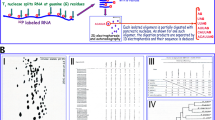Abstract
No field of biology has been more deeply influenced by Darwin’s notion of evolution than has the science of human origins. Yet while Charles Darwin himself was happy to speculate in the abstract upon the qualities of hypothetical human ancestors, he remained curiously reluctant to engage directly with its tangible fossil record. There appear to have been several reasons for this, including Darwin’s desire to avoid confrontation; the scandal-ridden nature of antiquarianism in the mid-nineteenth century; Darwin’s own abiding qualms about the reliability of the fossil record; and his close colleague Thomas Henry Huxley’s dismissal of the Neanderthal skeleton, the most distinctive hominid fossil known at the time, as merely representing a “barbaric” variety of Homo sapiens. There can be no doubt that human evolution and its implications had been very much on Darwin’s mind in the years leading up to the publication of On the origin of species; but in the end he seems to have made a conscious decision to stay clear of this social and intellectual minefield. Even his vast treatise on The descent of man is more plausibly read as an anti-polygenist, anti-slavery tract, and as an exegesis of sexual selection, than as a serious examination of the actual tangible evidence for the origins of humankind. Nonetheless, while staying safely in the realm of abstract speculation, in this great work Darwin managed to establish many of the themes that still dominate paleoanthropology today, including human descent from a single species of ape-like progenitor, the primacy of upright locomotion in human evolution, the birth of our family in the continent of Africa, and, for better or for worse, “the necessary acquirement of each mental power and capacity by gradation”, the founding mantra of today’s evolutionary psychology.
Similar content being viewed by others
References
Darwin C (1859) On the origin of species by means of natural selection, or the preservation of favoured species in the struggle for life. John Murray, London
Darwin C (1871) The descent of man, and selection in relation to sex (2 vols). John Murray, London
Darwin C (1872) The expression of the emotions in man and animals. John Murray, London
Desmond A, Moore J (2009) Darwin’s sacred cause: how a hatred of slavery shaped Darwin’s views on human evolution. Houghton Mifflin Harcourt, New York
Huxley TH (1860) Origin of species. Republished in Darwiniana: essays (1894). Appleton, New York
Huxley TH (1863) Evidence as to man’s place in nature. Appleton, New York
Moore J, Desmond A (2004) Introduction. In: Darwin C The descent of man, and selection in relation to sex. Penguin Group, London, pp xi–lvii
Schaaffhausen H (1861) On the crania of the most ancient races of man (trans. G. Busk). Nat Hist Rev 1:155–176
Schmerling P-C (1833–1834) Recherches sur les Ossemens Fossiles Découvertes dans les Cavernes de la Province de Liège (vol 1, 1832; viol. 2, 1834). Collardin, Liège
Schwartz JH (2006) Race and the odd history of human paleontology. Anat Rec (New Anat) 289B:225–240
Author information
Authors and Affiliations
Corresponding author
Additional information
This article belongs to a special issue dedicated to the Meeting “Il mondo dopo Darwin”, Accademia Nazionale dei Lincei, Rome, 11 February–12 February 2009.
This is a condensed version of a lecture given on 4 February 2009 for the Museo Friuliano di Storia Naturale, Udine, and at the Academia Lincei, Rome, on 11 February 2009. An expanded and slightly different version has been published in English, in Evol Educ Outreach, 2009, 2:28–34.
Rights and permissions
About this article
Cite this article
Tattersall, I. Charles Darwin and human evolution. Rend. Fis. Acc. Lincei 20, 323–331 (2009). https://doi.org/10.1007/s12210-009-0059-3
Published:
Issue Date:
DOI: https://doi.org/10.1007/s12210-009-0059-3




